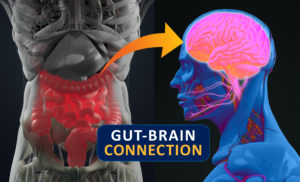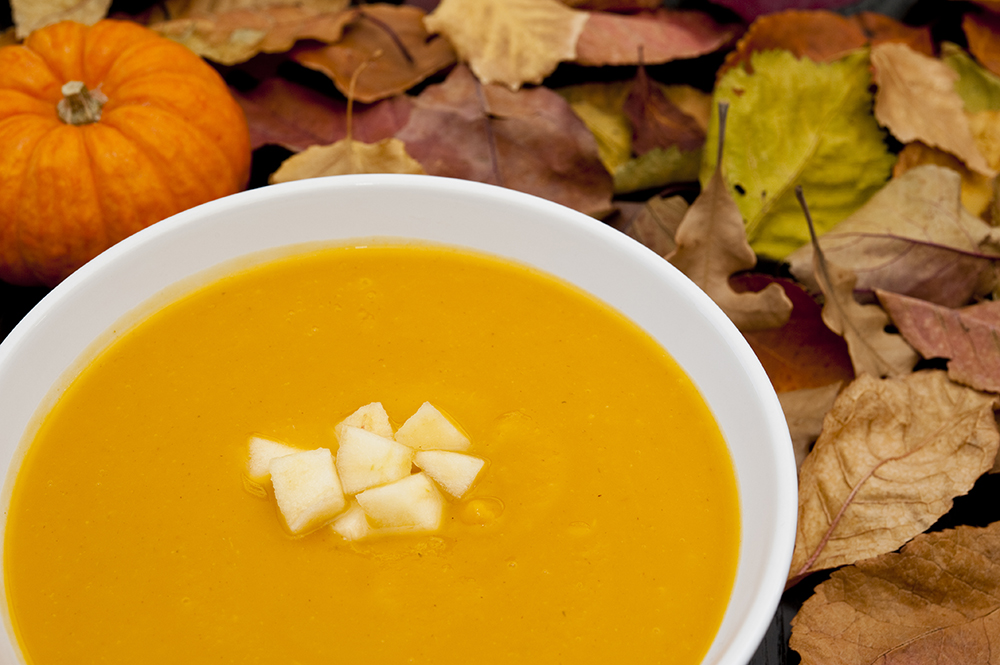 You’ve most likely been given the advice to “follow your gut.” You may have rolled your eyes at this cheesy saying, but there’s more to it than the old adage suggests.
You’ve most likely been given the advice to “follow your gut.” You may have rolled your eyes at this cheesy saying, but there’s more to it than the old adage suggests.
Every person has a gut microbiome, a community of microorganisms, in their large intestine that is made up of a plethora of microorganisms like bacteria, viruses and fungi. These work together to aid our digestion and immune responses and affect our metabolic rates. While “bacteria” could call to mind negative associations, the gut microbiome is made up of both good and bad bacteria. Good bacteria include bifidobacteria and Lactobacillus and can be found in probiotics and fermented foods like yogurt and sauerkraut. An example of bad bacteria is clostridia, which can cause diarrhea.
For optimal gut health, it’s important to have a balance between good and bad bacteria.
Recent research has found that dysbiosis, or the presence of more bad bacteria than good, may be linked to mental health conditions such as anxiety and depression. Chronic stress can also produce inflammation, another gut imbalance. Chronic inflammation overall has been linked to a host of ailments, ranging from arthritis to cardiovascular disease. Furthermore, a National Institutes of Health (NIH) study linked dysbiosis to conditions like irritable bowel syndrome (IBS).
The gut-brain connection, often called the “gut-brain axis,” works like a two-way street. Your gut is constantly sending signals to your brain – more specifically, the central nervous system, which is responsible for your breathing, heart rate and body temperature. The vagus nerve, one of the largest nerves connecting the gut and brain, is also integral to this communication, which uses neurotransmitters to talk back to the gut.
Serotonin, the neurotransmitter known to contribute to happiness, calm and focus, is also inextricably linked with the state of our microbiomes; over 95 percent of the serotonin in our bodies is produced in the gut.
You’ve likely already felt this gut-brain connection if you’ve had an upset stomach after eating an unhealthy or overly processed meal. The question is, what can you do to improve the health of both the gut and the brain? The health of your microbiome is highly affected by what you eat so let’s explore some of the dietary changes you can make to improve your gut microbiome and in turn improve your brain health.
- Increase plant-based proteins.
According to a 2017 systematic review from the Journal of Translational Medicine, consuming a high beef diet may be more likely to increase pathogenic bacteria and decrease beneficial bacteria than consuming a meatless diet.1 Several studies in the review also noted that pea protein consumption was correlated with anti-inflammation-promoting bacteria, whereas animal-based protein consumption was correlated with inflammation-promoting bacteria.1 These findings suggest swapping out animal proteins for plant-based proteins when you can may benefit the gut and brain.
- Decrease artificial sweetener intake.
Many people consume sugar-free sodas and artificially-sweetened foods to help decrease overall caloric intake. However, a 2014 study suggests these artificial sweeteners may not be great for the gut. This study correlated artificial sweetener intake with dysbiosis.2 Furthermore, according to the previously-mentioned systematic review, artificial sweeteners may be even more likely to create dysbiosis than natural sugars like glucose, fructose, and lactose. Therefore, it might be better to consume foods and beverages with natural sugars in moderation than to use artificially-sweetened foods and beverages as a substitute.
- Increase fiber intake.
Fiber cannot be broken down in the small intestine. Therefore, it does not provide a source of energy or calories to the body as a whole. However, fiber can be used for energy in a different way. It travels to the large intestine where it becomes fermented, providing a source of energy to the microbes living in the gut. This can ultimately increase the abundance and variety of good bacteria. To increase your fiber intake, add in more whole grains, legumes, nuts, seeds, fruits and vegetables!
- Eat probiotic-rich foods
Probiotics are microorganisms that maintain or restore beneficial bacteria to the digestive tract. Examples of foods containing probiotics include yogurt, kefir, kombucha, sauerkraut, dark chocolate, kimchi, tempeh, pickles, and other fermented foods. Consuming these foods and beverages or taking a probiotic supplement may be a good option to for improving your gut health.
Whether you eat a vegetarian diet a couple of times a week, decrease artificial sweeteners, or increase fiber and probiotic foods, your gut and your brain will thank you. Even a few simple changes to your diet can help you feel better physically and mentally.
Megan Rasmussen MS, RDN is a clinical dietician for Kootenai Health. To learn more, visit kh.org/nutrition-services or call 208-625-6493.
References
- Singh, R., Chang, H., Yan, D., Lee, K., Ucmak, D., Wong, K., Abrouk, M., Farahnik, B., Nakamura, M., Zhu, T., Bhutani, T. and Liao, W., 2022. Influence of diet on the gut microbiome and implications for human health.
- Suez, J., Korem, T., Zeevi, D., Zilberman-Schapira, G., Thaiss, C., Maza, O., Israeli, D., Zmora, N., Gilad, S., Weinberger, A., Kuperman, Y., Harmelin, A., Kolodkin-Gal, I., Shapiro, H., Halpern, Z., Segal, E. and Elinav, E., 2022. Artificial sweeteners induce glucose intolerance by altering the gut microbiota.



